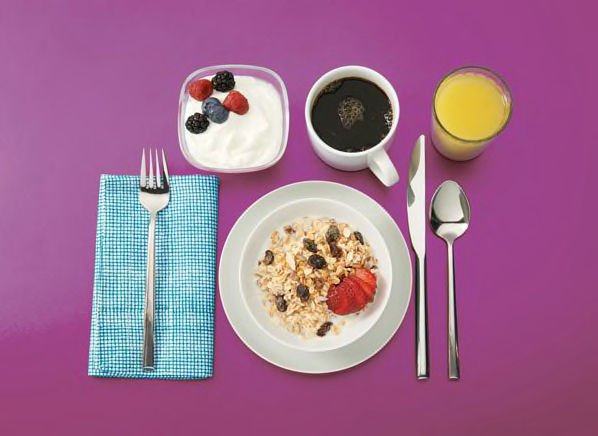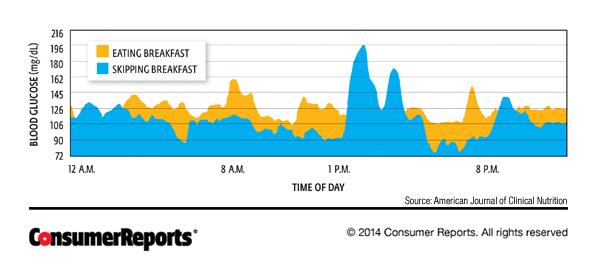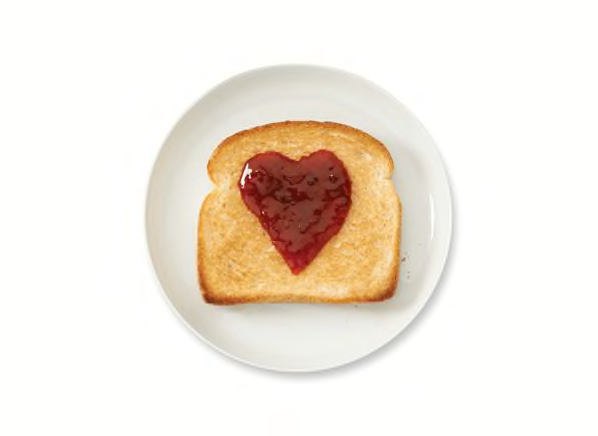1. It may protect your heart
In a recent study that involved almost 27,000 men, researchers found that those who didn't eat a morning meal were 27 percent more likely to develop heart disease than those who did. "Our research indicates that people who skip breakfast gain weight, which can lead to diabetes as well as high cholesterol and blood pressure—all of which can raise your risk of heart disease," Rimm notes. The reason isn't entirely known, but he says that breakfast skippers tend to overeat at other meals and snack excessively throughout the day.
2. It might lower your risk of type 2 diabetes
A morning meal may help you avoid fluctuating glucose levels, which can lead to diabetes. A study of almost 30,000 men found that not eating breakfast raised the risk by 21 percent, even after taking into account their body mass, what they ate, and other factors. In a study of women, those under age 65 who skipped breakfast even just a few times per week were 28 percent more likely to develop diabetes than women who ate it regularly. And if you're in the habit of dashing out the door for work in the morning with only a cup of coffee, take note: Women in the study who worked full-time had a greater risk than those who worked part-time, the researchers noted, possibly because job stress has been found to raise glucose levels.
3. It gets you moving
In a recent study published in the American Journal of Clinical Nutrition (AJCN), people who ate breakfast were more physically active during the morning than those who didn't. That might be because a temporary increase in blood sugar gave them more energy. It's interesting to note that those who ate a morning meal consumed more calories over the course of the day than the breakfast skippers—but they didn't gain weight because they were more active.
4. It might give you a mental edge
Research involving adults and children has indicated that breakfast might enhance memory, attention, the speed of processing information, reasoning, creativity, learning, and verbal abilities. Scientists at the University of Milan in Italy reviewed 15 studies and found some evidence that those benefits might be a function of the stable glucose levels that a morning meal provides.
5. It just might keep your weight down
Although more than 100 studies have linked eating breakfast with a reduced risk of obesity, researchers point out that those studies are merely observational and thus don't prove that the meal keeps you from gaining weight. More solid evidence comes from randomized controlled trials. One study of that type, published in the journal Obesity, found that overweight people who were dieting and ate more calories for breakfast than dinner lost more weight compared with subjects who ate larger evening meals. But other trials have been inconclusive. A study published in AJCN found that eating or skipping breakfast had no effect on weight loss, although it may have been too small to be meaningful.























